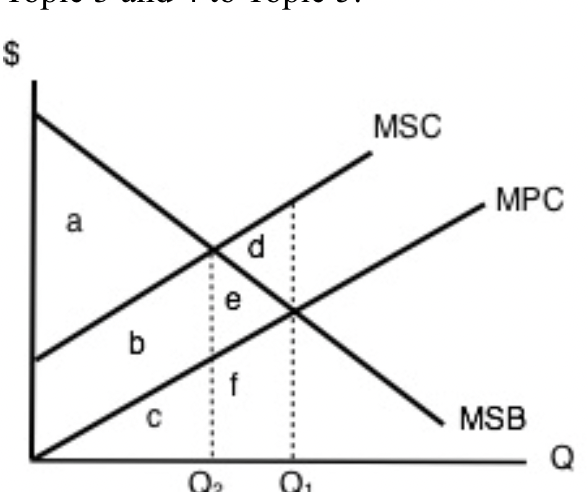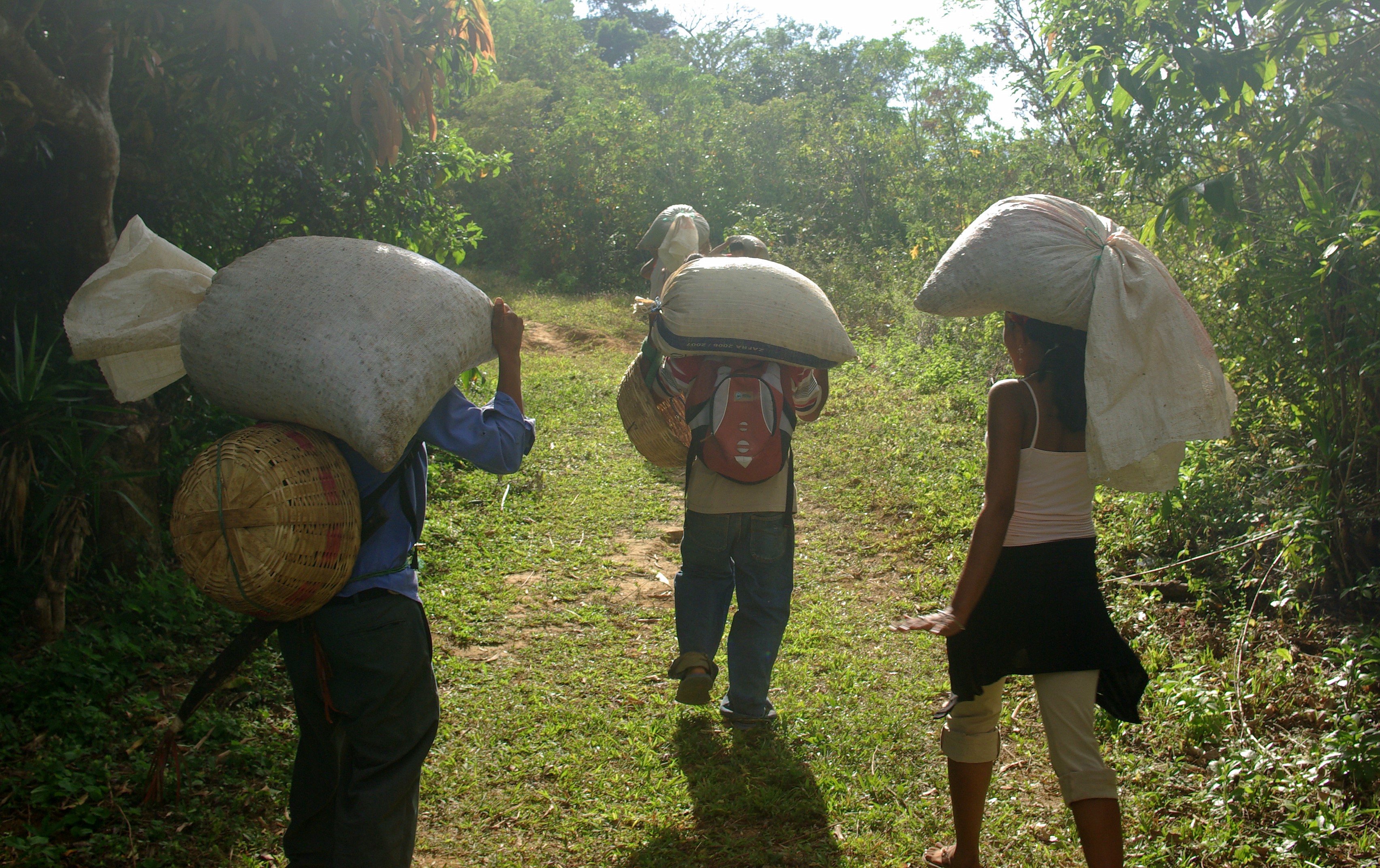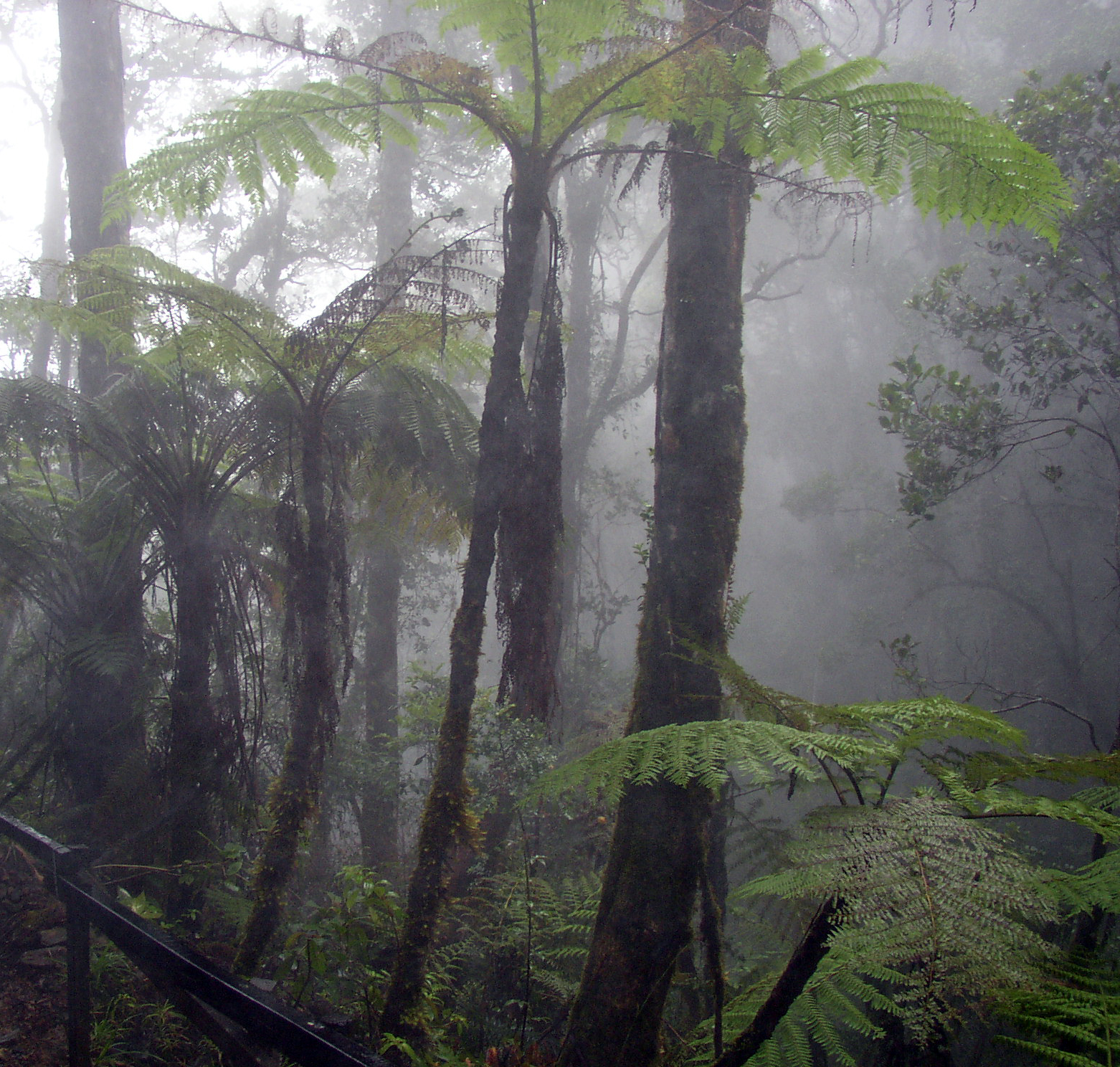|
Spillover Effect
In economics a spillover is an economic event in one context that occurs because of something else in a seemingly unrelated context. For example, externalities of economic activity are non-monetary spillover effects upon non-participants. Odors from a rendering plant are negative spillover effects upon its neighbors; the beauty of a homeowner's flower garden is a positive spillover effect upon neighbors. In the same way, the economic benefits of increased trade are the spillover effects anticipated in the formation of multilateral alliances of many of the regional nation states: e.g. SAARC (South Asian Association for Regional Cooperation), ASEAN (Association of South East Asian Nations). In an economy in which some markets fail to clear, such failure can influence the demand or supply behavior of affected participants in other markets, causing their effective demand or effective supply to differ from their notional (unconstrained) demand or supply. Another kind of spillover ... [...More Info...] [...Related Items...] OR: [Wikipedia] [Google] [Baidu] |
Economics
Economics () is the social science that studies the production, distribution, and consumption of goods and services. Economics focuses on the behaviour and interactions of economic agents and how economies work. Microeconomics analyzes what's viewed as basic elements in the economy, including individual agents and markets, their interactions, and the outcomes of interactions. Individual agents may include, for example, households, firms, buyers, and sellers. Macroeconomics analyzes the economy as a system where production, consumption, saving, and investment interact, and factors affecting it: employment of the resources of labour, capital, and land, currency inflation, economic growth, and public policies that have impact on these elements. Other broad distinctions within economics include those between positive economics, describing "what is", and normative economics, advocating "what ought to be"; between economic theory and applied economics; between ratio ... [...More Info...] [...Related Items...] OR: [Wikipedia] [Google] [Baidu] |
Positive Externalities
In economics, an externality or external cost is an indirect cost or benefit to an uninvolved third party that arises as an effect of another party's (or parties') activity. Externalities can be considered as unpriced goods involved in either consumer or producer market transactions. Air pollution from motor vehicles is one example. The cost of air pollution to society is not paid by either the producers or users of motorized transport to the rest of society. Water pollution from mills and factories is another example. All consumers are all made worse off by pollution but are not compensated by the market for this damage. A positive externality is when an individual's consumption in a market increases the well-being of others, but the individual does not charge the third party for the benefit. The third party is essentially getting a free product. An example of this might be the apartment above a bakery receiving the benefit of enjoyment from smelling fresh pastries every mornin ... [...More Info...] [...Related Items...] OR: [Wikipedia] [Google] [Baidu] |
Economic Geography
Economic geography is the subfield of human geography which studies economic activity and factors affecting them. It can also be considered a subfield or method in economics. There are four branches of economic geography. There is, primary sector, Secondary sector, Tertiary sector, & Quaternary sector. Economic geography takes a variety of approaches to many different topics, including the location of industries, economies of agglomeration (also known as "linkages"), transportation, international trade, development, real estate, gentrification, ethnic economies, gendered economies, core-periphery theory, the economics of urban form, the relationship between the environment and the economy (tying into a long history of geographers studying culture-environment interaction), and globalization. Theoretical background and influences There are varied methodological approaches. Neoclassical location theorists, following in the tradition of Alfred Weber, tend to focus on indust ... [...More Info...] [...Related Items...] OR: [Wikipedia] [Google] [Baidu] |
Knowledge Spillover
Knowledge spillover is an exchange of ideas among individuals.Carlino, Gerald A. (2001) Business Review Knowledge Spillovers: Cities' Role in the New Economy.'' Q4 2001. In knowledge management economics, knowledge spillovers are non-rival knowledge market costs incurred by a party not agreeing to assume the costs that has a spillover effect of stimulating technological improvements in a neighbor through one's own innovation. Such innovations often come from specialization within an industry. A recent, general example of a knowledge spillover could be the collective growth associated with the research and development of online social networking tools like Facebook, YouTube, and Twitter. Such tools have not only created a positive feedback loop, and a host of originally unintended benefits for their users, but have also created an explosion of new software, programming platforms, and conceptual breakthroughs that have perpetuated the development of the industry as a whole. Th ... [...More Info...] [...Related Items...] OR: [Wikipedia] [Google] [Baidu] |
Indirect Land Use Change Impacts Of Biofuels
The indirect land use change impacts of biofuels, also known as ILUC or iLUC (pronounced as i-luck), relates to the unintended consequence of releasing more carbon emissions due to land-use changes around the world induced by the expansion of croplands for ethanol or biodiesel production in response to the increased global demand for biofuels. As farmers worldwide respond to higher crop prices in order to maintain the global food supply-and-demand balance, pristine lands are cleared to replace the food crops that were diverted elsewhere to biofuels' production. Because natural lands, such as rainforests and grasslands, store carbon in their soil and biomass as plants grow each year, clearance of wilderness for new farms translates to a net increase in greenhouse gas emissions. Due to this off-site change in the carbon stock of the soil and the biomass, indirect land use change has consequences in the greenhouse gas (GHG) balance of a biofuel. Working Paper REF. 437.101 Other ... [...More Info...] [...Related Items...] OR: [Wikipedia] [Google] [Baidu] |
Climate Policy
The politics of climate change results from different perspectives on how to respond to climate change. Global warming is driven largely by the emissions of greenhouse gases due to human economic activity, especially the burning of fossil fuels, certain industries like cement and steel production, and land use for agriculture and forestry. Since the Industrial Revolution, fossil fuels have provided the main source of energy for economic and technological development. The centrality of fossil fuels and other carbon-intensive industries has resulted in much resistance to climate friendly policy, despite widespread scientific consensus that such policy is necessary. Climate change first emerged as a political issue in the 1970s. Efforts to mitigate climate change have been prominent on the international political agenda since the 1990s, and are also increasingly addressed at national and local level. Climate change is a complex global problem. Greenhouse gas (GHG) emissions ... [...More Info...] [...Related Items...] OR: [Wikipedia] [Google] [Baidu] |
Carbon Leakage
Carbon leakage occurs when there is an increase in greenhouse gas emissions in one country as a result of an emissions reduction by a second country with a strict climate policy. Carbon leakage may occur for a number of reasons: * If the emissions policy of a country raises local costs, then another country with a more relaxed policy may have a trading advantage. If demand for these goods remains the same, production may move offshore to the cheaper country with lower standards, and global emissions will not be reduced. * If environmental policies in one country add a premium to certain fuels or commodities, then the demand may decline and their price may fall. Countries that do not place a premium on those items may then take up the demand and use the same supply, negating any benefit. There is no consensus over the magnitude of long-term leakage effects. This is important for the problem of climate change. Carbon leakage is one type of spill-over effect. Spill-over effects ca ... [...More Info...] [...Related Items...] OR: [Wikipedia] [Google] [Baidu] |
The Global Financial Crisis
''The'' () is a grammatical article in English, denoting persons or things that are already or about to be mentioned, under discussion, implied or otherwise presumed familiar to listeners, readers, or speakers. It is the definite article in English. ''The'' is the most frequently used word in the English language; studies and analyses of texts have found it to account for seven percent of all printed English-language words. It is derived from gendered articles in Old English which combined in Middle English and now has a single form used with nouns of any gender. The word can be used with both singular and plural nouns, and with a noun that starts with any letter. This is different from many other languages, which have different forms of the definite article for different genders or numbers. Pronunciation In most dialects, "the" is pronounced as (with the voiced dental fricative followed by a schwa) when followed by a consonant sound, and as (homophone of the archaic p ... [...More Info...] [...Related Items...] OR: [Wikipedia] [Google] [Baidu] |
COVID-19 Pandemic
The COVID-19 pandemic, also known as the coronavirus pandemic, is an ongoing global pandemic of coronavirus disease 2019 (COVID-19) caused by severe acute respiratory syndrome coronavirus 2 (SARS-CoV-2). The novel virus was first identified in an outbreak in the Chinese city of Wuhan in December 2019. Attempts to contain it there failed, allowing the virus to spread to other areas of Asia and later COVID-19 pandemic by country and territory, worldwide. The World Health Organization (WHO) declared the outbreak a public health emergency of international concern on 30 January 2020, and a pandemic on 11 March 2020. As of , the pandemic had caused COVID-19 pandemic cases, more than cases and COVID-19 pandemic deaths, confirmed deaths, making it one of the deadliest pandemics in history, deadliest in history. COVID-19 symptoms range from Asymptomatic, undetectable to deadly, but most commonly include fever, Nocturnal cough, dry cough, and fatigue. Severe illness is more likely ... [...More Info...] [...Related Items...] OR: [Wikipedia] [Google] [Baidu] |
Great Depression
The Great Depression (19291939) was an economic shock that impacted most countries across the world. It was a period of economic depression that became evident after a major fall in stock prices in the United States. The economic contagion began around September and led to the Wall Street stock market crash of October 24 (Black Thursday). It was the longest, deepest, and most widespread depression of the 20th century. Between 1929 and 1932, worldwide gross domestic product (GDP) fell by an estimated 15%. By comparison, worldwide GDP fell by less than 1% from 2008 to 2009 during the Great Recession. Some economies started to recover by the mid-1930s. However, in many countries, the negative effects of the Great Depression lasted until the beginning of World War II. Devastating effects were seen in both rich and poor countries with falling personal income, prices, tax revenues, and profits. International trade fell by more than 50%, unemployment in the U.S. rose to 23% ... [...More Info...] [...Related Items...] OR: [Wikipedia] [Google] [Baidu] |
Negative Externalities
In economics, an externality or external cost is an indirect cost or benefit to an uninvolved third party that arises as an effect of another party's (or parties') activity. Externalities can be considered as unpriced goods involved in either consumer or producer market transactions. Air pollution from motor vehicles is one example. The cost of air pollution to society is not paid by either the producers or users of motorized transport to the rest of society. Water pollution from mills and factories is another example. All consumers are all made worse off by pollution but are not compensated by the market for this damage. A positive externality is when an individual's consumption in a market increases the well-being of others, but the individual does not charge the third party for the benefit. The third party is essentially getting a free product. An example of this might be the apartment above a bakery receiving the benefit of enjoyment from smelling fresh pastries every mornin ... [...More Info...] [...Related Items...] OR: [Wikipedia] [Google] [Baidu] |




.jpg)
.png)

